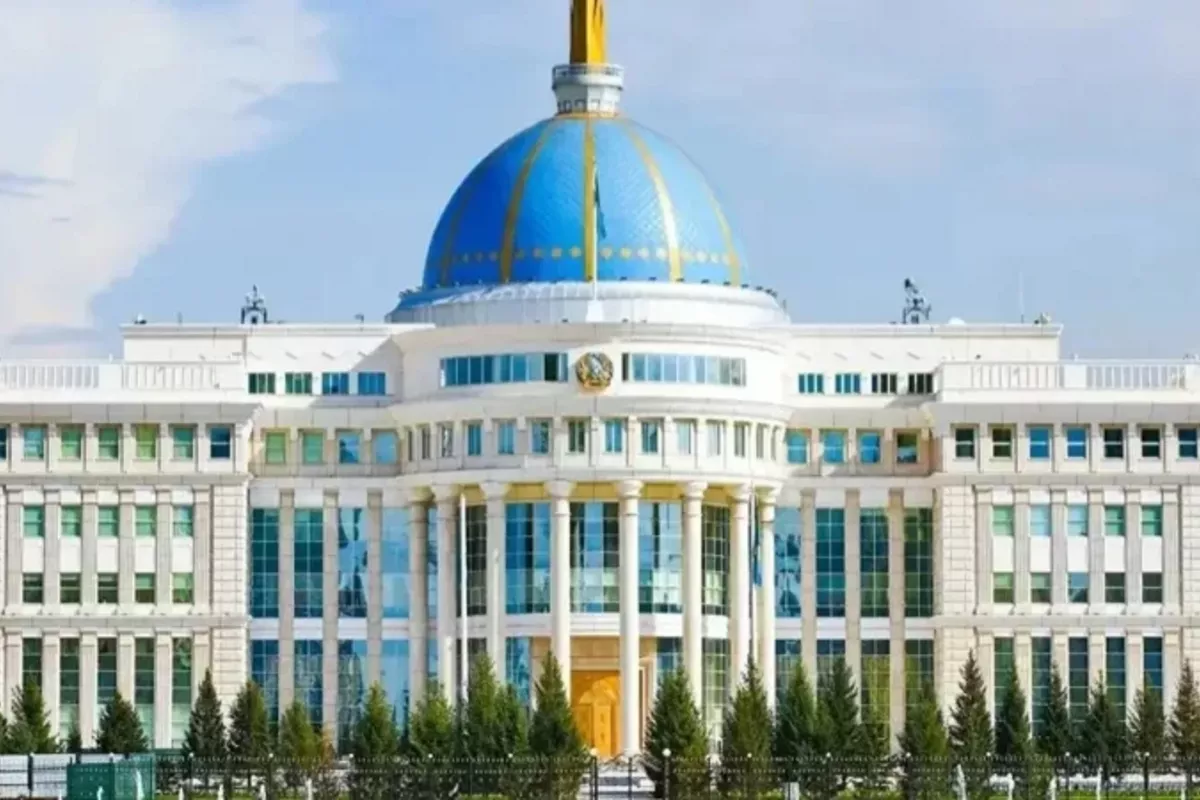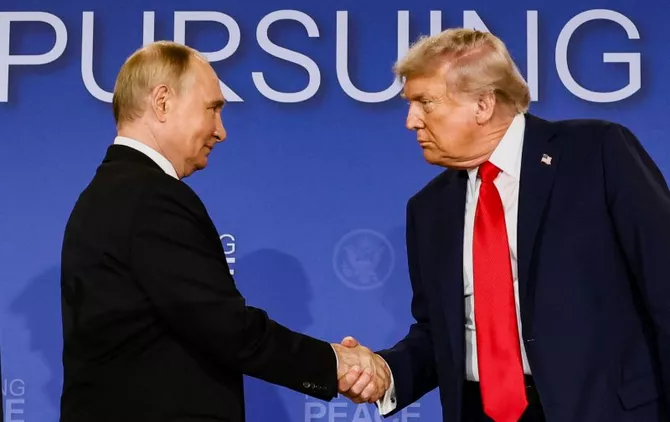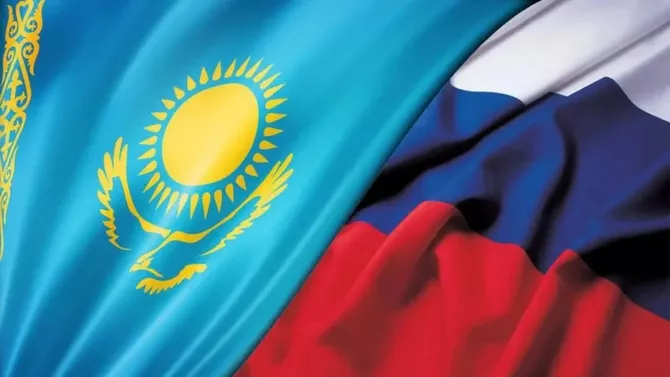
photo: Kazinform
The meeting between U.S. President Donald Trump and Russian President Vladimir Putin at the Elmendorf-Richardson military base in Anchorage, Alaska, instantly became the defining moment in world politics. As expected, the central theme of the talks was the conflict in Ukraine. Alongside this, the two leaders engaged in a broad discussion of U.S.-Russian relations.
The negotiations lasted two hours and forty-five minutes - the longest exchange ever held between the two presidents. More than just a diplomatic encounter, it marked the beginning of what could become a reconfiguration of the international system itself. Trump’s attempt to end the war between Russia and Ukraine - crucially, in a framework that considered Moscow’s interests - may shape the trajectory of the post-Soviet space for years to come.

Photo: Reuters
Why, many asked, did Trump concede so much ground to the Kremlin? The answer lies partly in inheritance. This was not Trump’s war. It was a conflict handed down by the previous administration, which had, in fact, played no small role in its escalation. From the outset, Trump opposed the war. As the 47th President of the United States, his focus lies elsewhere: on the global economy, trade, and the prosperity of America itself. The war fueled corruption and drained American resources. Western sanctions, designed to weaken Moscow, often boomeranged, inflicting more damage on the sanctioning economies than on Russia. And beyond the battlefield, Trump views Russia as indispensable - a counterbalance to China’s growing power. These considerations, taken together, explain why the Alaska talks concluded relatively quickly, with both sides aligning on the need for a long-term peace.
Putin himself described the talks as productive in his conversation with Kazakh President Kassym-Jomart Tokayev. Tokayev, in turn, hailed the Alaska summit as a breakthrough, both for Russia’s international standing and for the restoration of trust in global affairs.
Yet the reality remains that the Special Military Operation has weakened Moscow’s influence across the post-Soviet space. Kazakhstan, in particular, continues to pursue a multi-vector foreign policy in 2025 - a strategy that frustrates the Kremlin. Formally, Russia and Kazakhstan remain allies through the CSTO, the Eurasian Economic Union, and other structures. But Astana has not recognized Crimea as part of Russia and maintains neutrality regarding the war in Ukraine. It is simultaneously deepening ties with China, Türkiye, and the West.
Even so, Russia remains one of Kazakhstan’s principal trading partners. Oil and gas still move through Russian pipelines and infrastructure, while food products flow across the border. At the same time, Astana is actively promoting the Trans-Caspian Transport Corridor, expanding exports to China and the EU, and building alternative routes for its goods. Russian language influence is eroding, with a growing network of Kazakh-language schools, media outlets, and cultural projects. Increasingly, the public discourse emphasizes distancing from “imperial rhetoric” and affirming Kazakhstan as an independent power, not a “younger brother.”
Two opposing forces are at work in Kazakhstan today. One seeks greater sovereignty and a stronger national identity. The other favors maintaining the positive aspects of the historic partnership with Russia - nurtured through mixed families, cross-border business ties, humanitarian projects, and cultural and linguistic commonalities. Economics, however, continues to be the decisive factor.
Russia remains Kazakhstan’s largest supplier of petroleum products, though Belarus occasionally claims the top spot in specific categories. In 2022, for instance, Kazakhstan imported 1.1 thousand tons of automotive gasoline - 0.5 thousand tons from Russia and 0.6 thousand tons from Belarus. By 2023, imports rose to 9.4 thousand tons, of which 8.5 thousand came from Russia and 0.8 thousand from Belarus. In 2024, imports reached 20.3 thousand tons - 20 thousand from Russia and just 0.2 thousand from Belarus. By mid-2025, imports had sharply dropped to 0.2 thousand tons, nearly all from Russia.
Russia’s dominance in diesel is even more striking. In 2022, of 182.4 thousand tons imported by Kazakhstan, 166.9 thousand came from Russia and 13.9 thousand from Kyrgyzstan. In 2023, imports reached 392.7 thousand tons, with 371 thousand from Russia and 21.5 thousand from Kyrgyzstan. In 2024, Russia supplied 55.4 thousand tons of 62.3 thousand imported. And in the first five months of 2025, Russia accounted for 60.2 thousand of 61.2 thousand tons imported.

Photo: Kazinform
Today, more than 11,000 joint enterprises operate across both economies. The two countries are carrying out joint ventures in automobile and aircraft manufacturing, advanced oil refining, transport infrastructure, digital technology, and agribusiness. Major Russian corporations - Rosatom, Gazprom, Lukoil, Rusal, Kamaz, Sberbank, Beeline, EuroChem, and others - are firmly embedded in Kazakhstan’s economy. Over the past 17 years, Russia has invested about $20 billion directly into Kazakhstan, while Kazakhstan has invested around $6 billion into Russia.
On September 25, 2023, during the “Innoprom Kazakhstan” international industrial exhibition, Prime Minister Alikhan Smailov reported that 30 joint projects had already been implemented, with another 40 underway, totaling more than $16 billion. On September 6, 2024, Kazakhstan’s Ambassador to Russia Dauren Abayev noted that over 28,000 companies with Russian capital were operating in the republic. On September 30, 2024, Russian Deputy Minister of Economic Development Dmitry Volvach announced that in the first quarter of 2024 alone, Russian investment in Kazakhstan amounted to approximately $809 million, with over 23,500 Russian companies and 5,000 joint ventures present in the country.
This interwoven network of joint enterprises and investments underscores a simple reality: severing these ties would cause irreparable damage to Kazakhstan’s economic well-being. Looking ahead, it is clear that once the war ends, Russia will focus more closely on strengthening bonds with its neighbors. And as the Alaska talks revealed, President Donald Trump appears prepared to support Moscow’s active role in global projects.
Share on social media